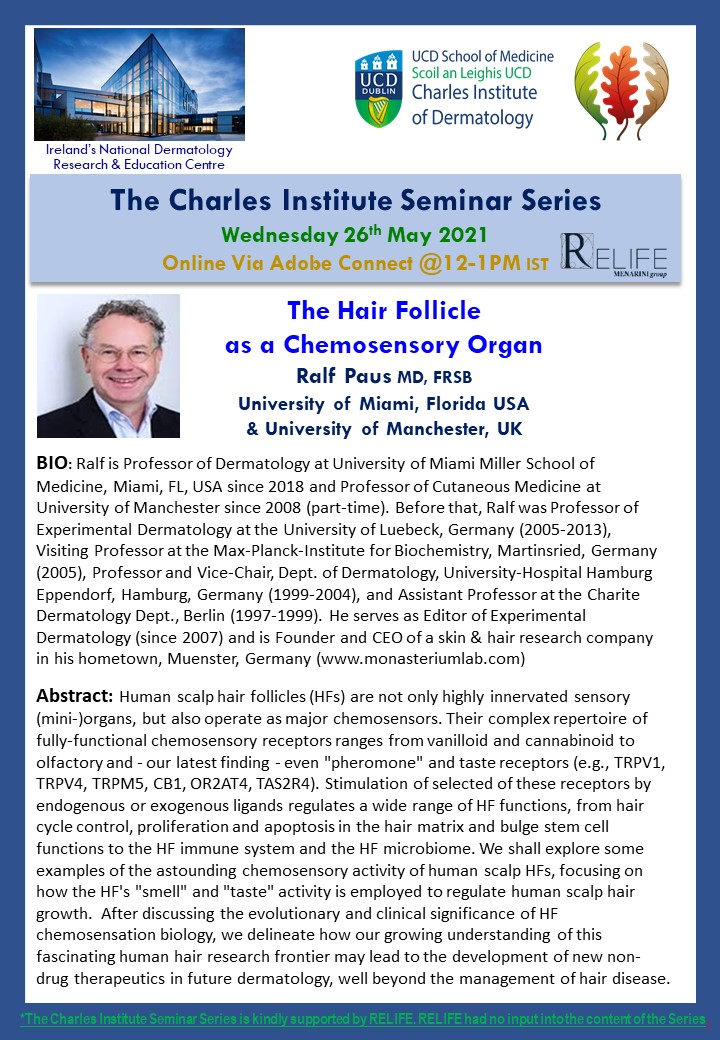Charles Seminar Series 2020-21: The Hair Follicle as a Chemosensory Organ, with guest speaker Prof. Ralf Paus, Wednesday 26th May 2021 at 12PM
Date of Talk: 26th May at 12PM via Adobe Connect
Talk Title: The Hair Follicle as a Chemosensory Organ
Speaker Details; Affiliation: Prof. Ralf Paus MD,FRSB, Universityof Miami, Florida USA & University of Manchester, UK
Keywords: Hair follicle,chemosensation/neuroendocrinology,immunology/epithelial stem cells/pigmentation, wound healing
Short Biography
Ralf is Professor of Dermatology at University of Miami Miller School of Medicine, Miami, FL, USA since 2018 and Professor of Cutaneous Medicine at
University of Manchester since 2008 (part time). Before that, Ralf was Professor of Experimental Dermatology at the University of Luebeck , Germany (2005 2013), Visiting Professor at the Max Planck Institute for Biochemistry, Martinsried , Germany(2005), Professor and Vice Chair, Dept. of Dermatology, University Hospital Hamburg Eppendorf, Hamburg, Germany (1999 2004), and Assistant Professor at the Charite Dermatology Dept., Berlin (1997 1999). He serves as Editor of Experimental Dermatology (since 2007) and is Founder and CEO of a skin & hair research company in his hometown, Muenster, Germany (www.monasteriumlab.com)
Abstract for talk:
Human scalp hair follicles (HFs) are not only highly innervated sensory(mini-)organs, but also operate as major chemosensors. Their complex repertoire of
fully functional chemosensory receptors ranges from vanilloid and cannabinoid toolfactory and our latest finding even "pheromone" and taste receptors (e.g., TRPV1,
TRPV4, TRPM5, CB1, OR2AT4, TAS2R4). Stimulation of selected of these receptors by endogenous or exogenous ligands regulates a wide range of HF functions, from hair cycle control, proliferation and apoptosis in the hair matrix and bulge stem cell functions to the HF immune system and the HF microbiome. We shall explore some examples of the astounding chemosensory activity of human scalp HFs, focusing on how the HF's "smell" and "taste" activity is employed to regulate human scalp hairgrowth. After discussing the evolutionary and clinical significance of HF chemosensation biology, we delineate how our growing understanding of this fascinating human hair research frontier may lead to the development of new non drug therapeutics in future dermatology, well beyond the management of hair disease.
If you are UCD-affiliated or a Consultant Dermatologist in Ireland and would like to register for this talk, please email charles@ucd.ie
